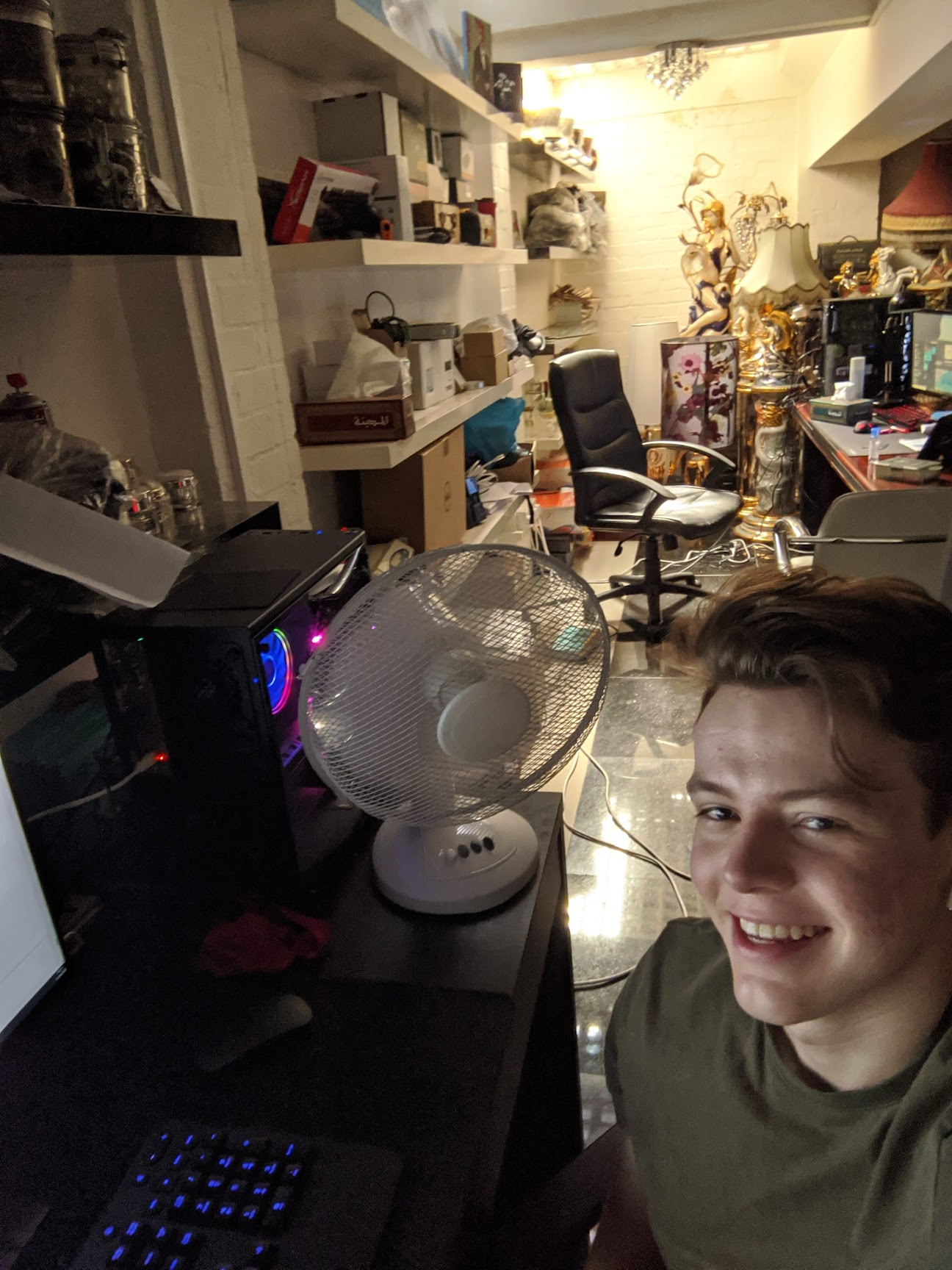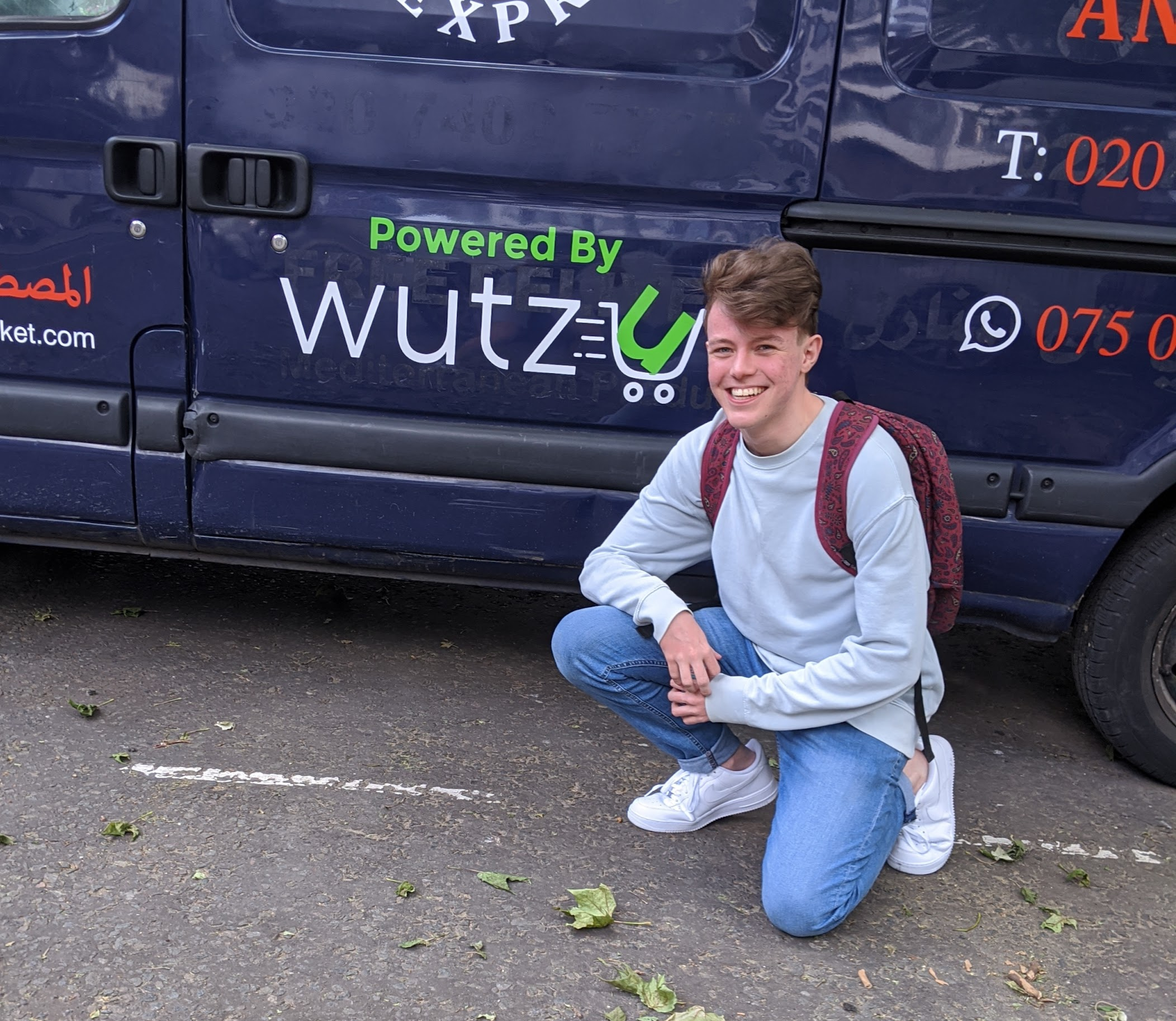Wutzu
I.
Wutzu was a grocery delivery marketplace for ethnic grocers in London that I co-founded in August 2019, around a month and a half after my 18th birthday.
In 2018, when I was 17, my father quit his comfortable desk job to found a startup. This gave me an original push to want to start working on a startup. At the time, I’d competed in a few programming competitions to limited success, but at that point I became interested in starting my own.
In 2019, on-demand grocery delivery apps were popping all over the place. Hevar’s family moved to the UK from Iraq when he was a toddler. He’d noticed that most of these apps exclusively catered to western tastes, and that there was a missing piece for delivery services targeted the strong immigrant community present in big cities.
Hevar and another fellow who shall go unnamed originally reached out to me via the r/startups Discord server. At the time, I was heading to Cardiff University to study computer science and was tinkering with a few of my own side projects. I decided to treat Wutzu as a learning experience. We had a little team of three and so over the course of my first semester I built while the other two sold.
There was a lot wrong with Wutzu in the early days. None of us really knew what we were doing. Arguments were frequent. It turns out if you take a couple of 18 year old misfits with no clue, they make a lot of mistakes. Wutzu was also a terrible name since no one could spell it, but it did mean nobody had registered wutzu.com. Great success.
One important thing I think we did have which is frequently missing amongst wantrepreneurs is a tremendous amount of grit. Hevar had the most of it - he spent the early days physically walking into arab grocery stores in west London to pitch them on signing up for Wutzu. I think that grit was enough to pave over a lot of the other mistakes we made along the way.
It took me just over 4 months to build the MVP for Wutzu. In the meantime, the scope had grown tremendously and we’d met a local grocery store owner who offered us some investment money. In exchange, he wanted me to drop out of university and move to London.
I did so readily and moved into a dingy little bedroom for £700 per month in Poplar.
II.
Wutzu was my first love. We made lots of mistakes, we laughed, and we also argued bitterly. Most of those arguments are absurd, looking back. I shall not re-litigate them, but it’s about what you’d expect if you drop three madmen in a big city with no kind of mentorship, oversight, or role models.
I think that lack of an anchor - an external mediator to help us avoid obvious startup pitfalls - was one of our earliest and biggest mistakes.
We went to work in the basement of a grocery store on Edgware road as our office. It was prime real estate for hitting all the local grocery stores in the area. The shop used to sell antiques, so we sat amongst old candlesticks, curtains and discarded mannequins as we built the Next Big Thing.


Nevertheless, cracks appeared.
Our lack of experience or a guiding hand meant we often walked ourselves into trouble.
We didn’t have a particularly good understanding of what was and was not appropriate behaviour from an angel investor. Looking back, he wasn’t a particularly nice or professional fellow. He would often loudly berate his employees, dock their pay over trivialities, and was often pretty rude to me in particular. As founders, our personal relationships frayed. I lacked the backbone to stand up for myself properly, and between us we all lacked knowledge of financial modelling and how to raise from venture capital.
Oftentimes though, interpersonal rumblings in business are symptomatic of a more important underlying commercial anxiety.
The underlying challenge we were facing was one of incentives. We’d assumed that lack of capability was the main reason that our intended customers hadn’t yet digitised. It became clearer to us over time that the lack of paperwork in many of these businesses was part of the design, not a defect. Paperwork means taxes, and the stark reality is that many of these stores struggle to keep their head above the water as it is. We naively thought that these financial anxieties would make stores more willing to embrace technology, but as is all too often the case, financial problems are usually responded to with frantic cost cutting and battening down of hatches.
III.
I resigned from Wutzu at the start of September 2020, just over one year from when I started work on it. I think it was the right time to go, in retrospect. A friend told me he knew someone trying to hire people like me to work at his shiny new Fintech. The interview went swimmingly and I began working at Modernbanc.